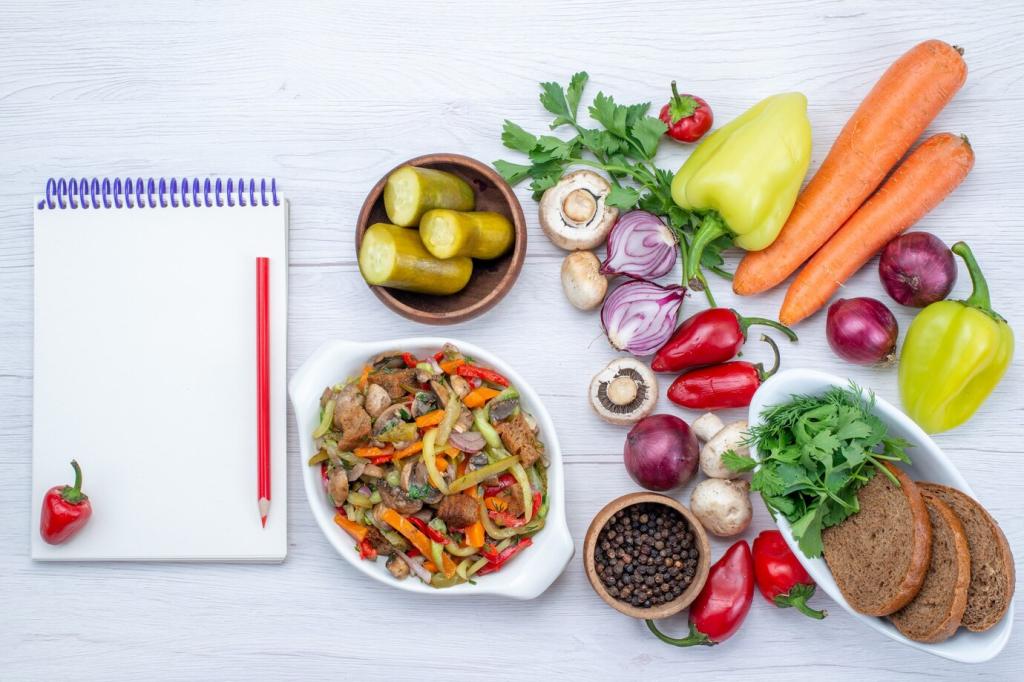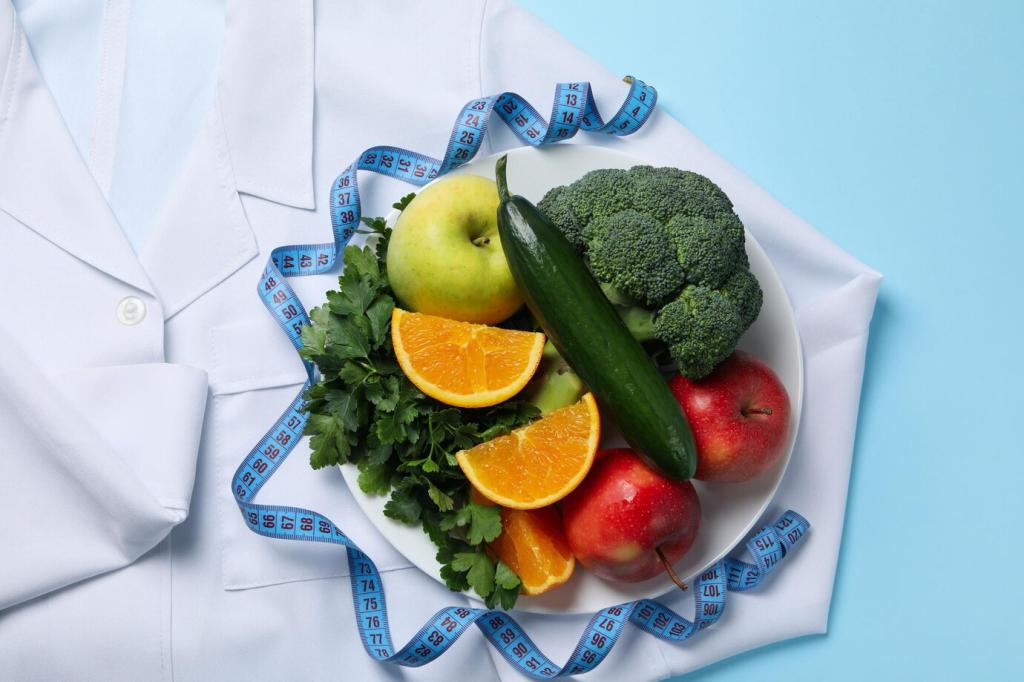Post-Workout Recovery Meals: Fuel Your Comeback
Understanding the Recovery Window
Aim to eat a balanced meal within two hours after training, focusing on quality protein and digestible carbohydrates. This window supports muscle repair and glycogen restoration without stress. Tell us your go-to timing ritual in the comments.

Protein Power and the Leucine Threshold
Choosing Protein: Whey, Eggs, or Plants
Whey digests quickly and is leucine-rich, eggs are versatile, and plant proteins like soy or pea can match needs when combined. Try tofu, edamame, or pea protein smoothies. Comment with your favorite protein source and why it works for you.
Hitting the Leucine Sweet Spot
Aim for about 2–3 grams of leucine per post-workout meal to maximize muscle protein synthesis. That often means 20–40 grams of high-quality protein. Track what leaves you energized, not stuffed, and share your most satisfying portion sizes below.
Portions That Fit Your Body
A simple guide is 0.25–0.4 grams of protein per kilogram of body weight after training. Adjust based on workout intensity and appetite. Do you scale up after heavy legs or long runs? Tell us how you tweak portions for different training days.
Rebuilding Glycogen with Smart Carbs
After intense or long training, aim for roughly 1.0–1.2 grams of carbohydrate per kilogram in the first hour, especially for back-to-back sessions. Strength-only workouts may need less. What’s your sweet spot? Share your carb targets and why they work.
Rebuilding Glycogen with Smart Carbs
High-GI carbs like rice, potatoes, or ripe fruit can be helpful right after workouts. Later meals can shift toward whole grains and fiber. Taste and digestion trump perfection. Tell us which carb sources sit best with you after hard intervals.
Hydration, Electrolytes, and Recovery Drinks
Electrolytes That Actually Matter
Sodium replaces what you sweat out and helps retain fluid; potassium and magnesium support muscle function. Add a pinch of salt to meals or choose electrolyte drinks on heavy sweat days. What’s your climate like? Share your hydration strategy with us.
Milk and Smoothies as Food-Drinks
Chocolate milk pairs carbs and protein with convenient calories, while smoothies blend fruit, yogurt, and oats for gentle digestion. They shine when you’re rushed. What’s in your blender after training? Drop your go-to recipe, and we might feature it.
Coffee and Carbs: Helpful or Hype?
Some research suggests caffeine with carbs can enhance glycogen replenishment, but tolerance varies. If you’re evening training, caffeine may disrupt sleep—sleep is recovery gold. Do you combine coffee and carbs? Tell us how it affects your recovery.

Practical Post-Workout Meal Ideas
Blend frozen berries, banana, oats, Greek yogurt or pea protein, and milk of choice. Add a pinch of salt on hot days. It’s cold, restorative, and easy to sip while cooling down. Share your favorite add-ins for extra creaminess or crunch.
Real Stories, Special Needs, and Consistency
After her first 20-mile run, Maya skipped food and bonked the next day. Now she preps a rice, egg, and kimchi bowl before long runs. Energy stabilized, soreness dropped, and confidence grew. What lesson changed your recovery meals forever?


Real Stories, Special Needs, and Consistency
Lactose-free milk, fortified soy yogurt, gluten-free grains, and nut-free butters keep recovery inclusive. Focus on macros first, then flavor. Share your allergy-friendly swaps so readers with similar needs can build delicious, safe post-workout meals.
